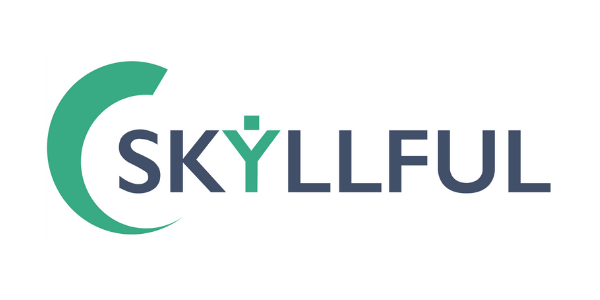When Venado Technologies first launched in 2009, it initially set out to help corporate leaders roll out new technology through custom software solutions. But as the company helped deploy more and more solutions, co-founder and CEO Justin Lake began to realize there was a large group being left out of conversations about the efficacy and efficiency of a technology roll out – the frontline workers who would be using the tech as a tool on the job site.
So, this summer, Venado rebranded, taking on the name of and focusing its business on its flagship product Skyllful.
“What we’ve realized is the technologist of the world, us included, have been cramming out this technology to frontline workers and they’re not necessarily comfortable with it right out of the gate,” Lake told NTX Inno.
Skyllful, pronounced “skill-full,” is a mobile digital adoption platform that addresses what Lake calls “the invisible problem of the invisible workforce” – training the frontline workers of enterprise companies to use the mobile tools they’re required to use on the job.
Unlike other training platforms, Skyllful allows scenario-based simulations of apps and other digital tools created other companies to help employees work through real-world uses of the technology. Because Skyllful creates it doesn’t require integration with enterprise systems or licensing partnerships with different vendors. And, Lake said the platform is safer for companies to use in training, since it doesn’t need to touch any of the company’s enterprise data.
“It’s about making sure that all of the business objectives you set out to accomplish… are met, and one of the key ways to do that is to make sure (frontline workers) understand that technology,” Lake said.
The platform also added a recently redesigned analytics dashboard in late September that allows project managers and operations executives to track worker’s readiness to before a new technology deployment, as well as identify areas of improvement.
The transition for Venado to Skyllful grew out of Lake’s original work with those managers and executives. He said that while in the field working on deployments, he noticed lack of confidence in the use of the tech by frontline workers was one of the biggest hang ups for a successful implementation.
“At the end of the day, mobile technology is depending on a human being for interaction and if the humans aren’t familiar enough with the technology to use it successfully, then the house of cards starts to fall apart,” Lake said.
While Lake said that the pandemic has accelerated the adoption of Skyllful, which includes Nestlé, CBRE and the Dairy Farmers of America among its customers, as business look for contactless ways to roll out potentially cost-saving solutions, not being able to meet with workers in the field to hear their input has been one of the biggest impacts to the company during the crisis.
“Companies are scrambling to find viable solutions to still deploy the technology that they need to do their job and run their business, but they need to find better ways to instruct the users on the properties of the technology and that’s where Skyllful comes in,” Lake said. “To really understand the work that our end users do, we feel it’s important to get out in the field. I want to see the trucks they’re running, I want to see the type of depot they’re operating out of… so we can get that really full picture.”
The increased use of Skyllful during the pandemic has also allowed the company to grow its Plano-based workforce. Lake said the it has added at least two positions to its full-time team of 15. He added that in total Skyllful has an extended global team of developers and full-time staff of about 40, which allowed them to easily make the switch to remote work in March.
As the company continues to grow, Lake said Skyllful will be looking to expand in the large enterprise field, where many of its clients are, by investing in its sales and marketing teams. Currently self-funded, Lake said the company will continue to look at organic growth, adding that outside funding as a recurring consideration. The company has also recently been adding new features and upgrades to the platform.
“We’re trying to bring the R back into ROI,” Lake said. “I think the men and women in the field are the users that we serve. I think the men and women at corporate are our customers. So, we’re essentially serving both of those stakeholders, and we have a different role to play with each of them, but the solution delvers the right information to the right people inside of the organization so that both of them can be successful."
Read this article on Dallas Business Journal.


No Comments Yet
Let us know what you think